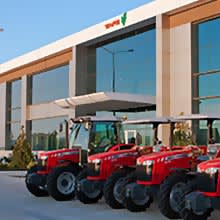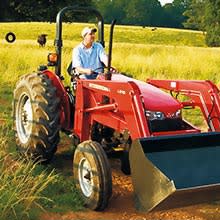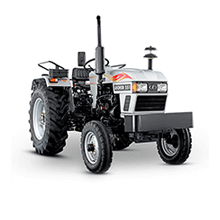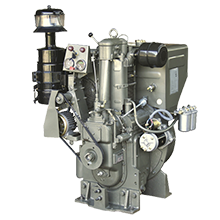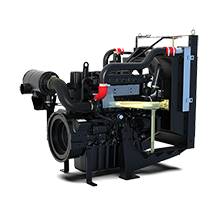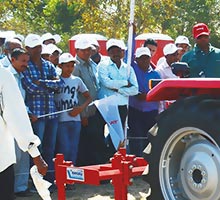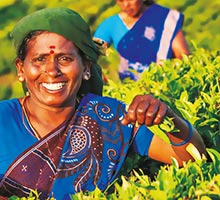Indian agriculture has transformed over the years to become tech-savvy. From importers of many products for sustenance, we have become globally renowned leaders of agricultural products today. This upgrade has been reflected in the entire “Agribusiness” sector with customers and stakeholders demanding modern, trendy and innovative products and services. The industry today is looking for a competitive, creative and educated talent pool that can contribute to the changing and evolving customer demands through various channels. Let’s see what the agriculture industry has to offer for young, educated career seekers.
Let’s start with exploring the educational options available for students interested in the Agricultural sector at the graduate and postgraduate levels:
Starting it Right
Workplaces today look for a diverse background when it comes to highly demanding and highly paid careers. The millennial and Gen Z work culture is very much appreciative of extraordinary and quick gratification and out-of-the-box thinking. A graduate degree in the agriculture/ allied sector helps in nurturing potential candidates with a lot of these hard and soft skills at a very early age. Most of the agricultural degrees in the country involve subjects like Statistics, Economics, Psychology, Sociology, Applied Mathematics, Physical Education, Management Basics, Arts and Creative Thinking in the curriculum in addition to core technical subjects. Students are also encouraged to participate, contribute towards solving real-life problems, involve in decision making and work closely with people and bureaucrats at various levels and are evaluated on the basis of their performance in overall academics and these levels.
Some of the core technical areas of study in an agricultural degree include the following:
- Agronomy: Basics of Agronomy, Kharif and Rabi Crop, Crop Protection, Weed Management, Irrigation Techniques, Water Resource Management, Organic Farming, Sustainable Agriculture.
- Plant Genetics: Botany, Basics of Genetics, Plant Breeding, Seed Technology, Basics of Biotechnology.
- Soil Science: Introduction to Soil Science, Soil Fertility, Soil Chemistry, Fertilizers, Agricultural Chemistry.
- Entomology: Pest Management, Beneficial Insects, Grain Storage and Management.
- Agriculture Engineering: Agriculture Machinery, Power and Tools, Harvest Technology, Environment Science and Engineering, Renewable Energy.
- Agricultural Meteorology: Climate patterns, Climatic hazards on Agriculture, Climatic Zones, Weather forecasting.
- Plant Pathology: Crop Diseases, Nematology.
- Horticulture: Fruit Crops, Medicinal Plants, Aromatic Plants, Flower Production, Spices, Plantation Crops.
- Agricultural Extension: Dimensions of Agricultural Extension, Extension Methodologies, and Entrepreneurship Development program.
- Agricultural Engineering – Farm Mechanisation, Farm Equipment, Systems, processes in Agri and Food technology
Following are some of the academic courses at graduation and post-graduation levels that could help you land a promising career in the Agricultural industry and beyond.
- B. Sc. Agriculture
- BSc. in Horticulture
- Agricultural Engineering
- Food Processing & Storage
- Bio-Technology
- Agribusiness and Food Management
- BSc. Forestry
- B.V.Sc.(Veterinary & AH)
- B.F.Sc.(Fisheries Science)
- B.Tech. (Dairy Technology)
- B.Sc.(Home Science)
- B.Tech.(Agricultural Engineering)
Post Graduation
- Agri Economics
- Extension
- Plant Genetics and Breeding
- Soil Science
- Entomology
- Microbiology
- MBA – Rural Marketing, Agribusiness Management
Indian and International Universities for Agriculture
- Indian Agricultural Research Institute, Delhi (IARI)
- G.B. Pant University Of Agriculture And Technology
- Anand Agricultural University (AAU)
- Banaras Hindu University (BHU)
- Chaudhary Charan Singh Haryana Agricultural University (CCSHAU)
- Tamil Nadu Agricultural University (TNAU)
- Kerala Agricultural University (KAU)
- Acharya N. G. Ranga Agricultural University (ANGRAU)
- Symbiosis International University (SIU)
- Indian Institute of Technology, Kharagpur (IIT, Kharagpur)
- Indian Institute of Management, Ahmedabad (IIMA)
- Indian Institute of Management, Lucknow (IIML)
- Xavier’s Institute of Management, Bhubaneshwar (XIMB)
- MANAGE
- Institute of Rural Management, Anand (IRMA)
- Indian Institute of Forest Management (IIFM)
- Wageningen University & Research, Netherlands
- Cornell University
- University of California, Davis
- AgroParisTech
- The University of California, Berkeley (UCB)
- Michigan State University
- ETH Zurich – Swiss Federal Institute of Technology
- Swedish University of Agricultural Sciences
Source: shiksha.com, topuniversities.com
For the full list of courses and agricultural universities in India approved by the Indian Council of Agricultural Research (ICAR), visit – https://icar.org.in/
Career Options
Once you graduate with an agricultural (or related field) degree, you are opening up your opportunities to a plethora of sectors. This versatility helps you in making a unique mark in your career path, giving you the option to try your hands at various fields, projects and industries. Following are some of the sectors where agricultural graduates are in high demand:
- Agriculture Economics
- Policy Making and Planning – Public Sector
- Agribusiness and Agripreneurship
- Food Technology
- Rural Marketing
- Agricultural and Commodity trading
- Consulting – Food, Agriculture and Life Sciences Division
- Agri Input industry
- Food Processing
- Dairy Industry
- Tractors, Farm Equipment & Mechanisation
- Agri Finance
- Public Sector and Private Sector Banks
- Landscaping and Urban farming
- Agricultural Research
- Plant Breeding and Genetics
A Sure Shot to Success!
A career in agriculture/ allied sectors today is a promising one as far as the learning and growth opportunities are concerned. The highlight here is that the career opportunities are not just limited to agriculture, but are open to multi-disciplinary, multi-industry exposure. The right mindset and the willingness to stay updated with the right skill sets are all one needs to succeed in this sector.


